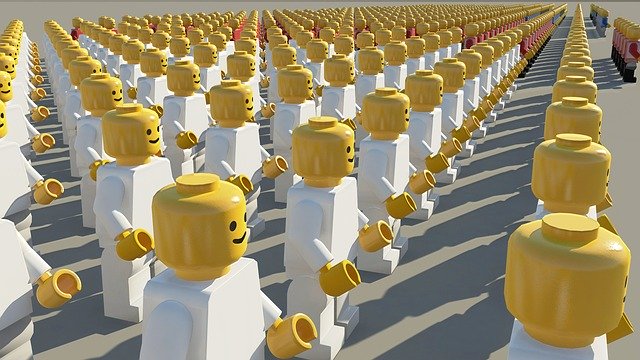Practical Tips to Maintain Productivity

Productivity is a major driving force in my team. I have implemented tools and principles to help everyone in my team optimize their creativity. I have written articles detailing the same and now is the right time to complete the trilogy.
Let’s discuss some practical tips I use to keep myself productive from within.
Understanding your environment
Your environment determines how productive you can be. I always prime my environment by removing any potential distractions from my workspace. I like focusing on one task and giving it my full attention. This means removing noise, loud music, programs, or entertainment sources. I keep my workspace simple with everything I need to accomplish my tasks. I sit at my computer and follow my planned checklist to accomplish my tasks.
I do not use any productivity aids. These are things like white noise machines or timers to keep you accountable. I find them more of a distraction than an aid. Keeping the workspace lean with one visual and mental stimulus helps me maintain my productivity. Eliminating all distractions will keep you primed for the best output you can achieve. Your environment is one of the aspects to prime. Your workflow is the other. I do this by using checklists.
Utilizing checklists
Checklists are like to-do lists but better. They fully break down a task into specific deliverables ensuring every aspect of a task is accomplished as required. They help you maximize your time and get more done efficiently and correctly. I plan my days by deciding on the most important tasks and other smaller tasks that can be done during the day. These checklists keep me focused on the most important things, saving me time and energy.
I've implemented these checklists in my remote team to great effect. I've seen my team reach peak productivity as they perform their tasks. We get things done and avoid the backlog, and wasted effort we previously experienced. The checklists are a staple of how I do things and how my team does things. To-do lists tell you what to do without breaking it down for you. It doesn't protect you from focusing on irrelevant aspects. Efficiency is the main priority and checklists help me and my team achieve this. I have written a detailed article that goes deeper into this topic. It will guide you on how to create, implement, and use these checklists.
Read: Boost Productivity With Checklist
Proper time management
I manage my time by planning my days. I have a simple text document that I use to write down a to-do list. I pick out the most important task to accomplish on the list and make it the most important adventure. I then decide which smaller tasks can fit my workday. These can range from meetings, giving, feedback, or tangible tasks I have to do. I prioritize the most important adventure as it is the main task with the biggest outcome for that day.
I organize my workday to spend less time deciding what to do. It helps me know what's urgent and what isn't. The to-do list is important for batching the tasks. The checklists then help me execute the tasks most efficiently. This prevents me from having to multitask or have my attention pulled in many directions. I like grouping similar tasks and handling them in one go. An example of this is when I give feedback to my writer. I usually have the time block reserved for specific tasks. It keeps me productive and ensures things keep moving. We do this on Goleko. It allows us to manage projects better.
Having a clear plan of attack is something I'd recommend everyone to implement. It will help you maintain your output and keep you productive.
Maintaining physical health
A healthy mind and body are essential to maintaining your productivity. You cannot produce optimally when you're not at your best. Maintaining your health is vital to enhancing your productivity levels. You can't do much when sick, tired, or hurt. I promote my physical health by eating a lot of meat, training, and going for walks. I drink a lot of water and get some rest. This allows me to stave off sickness and fatigue in most instances. It's not a full-proof strategy but it works well most of the time.
I keep my mind healthy by ingesting helpful and productive content. I read, practice coding, and learn to integrate new legacy frameworks. This keeps my mind eager, fresh, and active. Your mind is the biggest driving force of your motivation, creativity, and resilience. Keeping it productive is essential for your increased output. I am a big advocate of using coffee to get an extra boost. Caffeine is a good mental stimulant that helps you stay focused, energized, and productive. This is a template is used by many people to achieve great things. Take care of your mind and body and they'll take care of you.
Read: Tips on starting a startup
Remembering to rest
Rest is essential for your mind and body to recover. I struggle to know when to take some time to rest. I like maximizing my efforts, leading to overworking. I'm not a good judge of when to rest but I have some cues that help me. One of these cues is an inability to do my tasks well. This can be poor quality, poor efficiency, or both. This is a sign of reduced focus, intent, and drive.
I take time to rest and let my systems recharge. It's recommended to have eight hours of sleep to recover. I don't regularly hit these numbers but I make sure to get enough sleep in. Your productivity is adversely affected when you aren't at your best. Take breaks and rest when you feel tired, slow, or overwhelmed. It is counterproductive to have your efficiency drop and produce lackluster work. Take time to rest, replenish your strength, and then work as best you can.
Takeaways
You can enhance your productivity and execute all your plans. Properly manage your time, prioritize your physical health, understand your environment, and utilize some checklists. It will help you enhance your productivity and allow you to produce your best work. These are some of the strategies that work well for me. There are more techniques and strategies you can use to enhance your productivity. Remember to assess and adjust when possible. Keep your goal at the forefront and tailor your strategy toward it. You'll see your efficiency and productivity soar from it.
FAQs
Do productivity tools work?
Some people swear by them and others don't. They do not work for me but that doesn't mean they won't for you. Try them and assess whether you're more or less productive with them.
How important is sleep to staying productive?
Sleep is necessary to keep fresh and re-energized. Take a break when necessary and let your mind and body recover to serve you better on your next tasks.
What's the Pomodoro technique?
The Pomodoro Technique is a time management method developed by Francesco Cirillo in the late 1980s. It involves breaking work into intervals. The intervals were 25 minutes in length, separated by short breaks. The technique aims to improve productivity and focus by using short bursts of concentrated work, followed by rest periods.
How can I remain productive in project management?
You can use a project management tool to organize and delegate tasks to your team. Use checklists to break down the important tasks in the project and use your time well to fulfill said tasks. Implement timely feedback with proper and open communication. These principles should help you maintain high productivity in your project management.
For these and more thoughts, guides, and insights visit my blog at martinbaun.com
You can find Martin on X






Hey Martin, awesome article! The distraction-free workspace and checklists really resonate with me. Keeping things clean and having clear tasks makes such a difference.
Totally with you on the health stuff too. Regular workouts and eating well keep my mind sharp. I’ve been doing “deep work” sessions for focused tasks, and it’s been a game-changer.
Thanks for sharing your tips! Looking forward to more of your posts.
Cheers!
I'm so happy these helped you, Luca!
IOnce I found out how much these make my creative juices get flowing, its *almost been a walk in the park, haha!
Good tips!
The professional white-collar working world is slowly coming around to the realisation that prioritising health should be at the top of any effective productivity method.
Proactive rest planning is a game changer...
Well said, Mike, and thank you!
More often than not were too busy to really look at what ideals we truly hold dear. Health should ALWAYS be number 1.
Ineed!
I've found the solo-founder particularly challenging to incept with this idea, many of us would gladly trade our health for 'success'...
A unfortunate bi-product of the (toxic) hustle culture narrative? Perhaps.
Keep fighting the good fight!
I relate to that deeply as a solo(now entre)preneur, the sleepless nights, coffees (I still do that, but rarely, he he), order-ins.
I must agree though, it is hustle culture, the need to be 'ahead of the game'. Not good for you.
Hazar my friend :)
Great read. I feel like this is an underrated skill:
"I organize my workday to spend less time deciding what to do. It helps me know what's urgent and what isn't. The to-do list is important for batching the tasks."
Certainly Hankim. When you make clear and concise goals -it's easier to achieve them!
great breakdown of practical tips for boosting productivity. I especially appreciate the focus on understanding your environment and using checklists. will definitely give them a go
I appreciate that Cristian.
It's the littlest things that change how you experience life!
Good read and a good list. Another tip is scheduling your breaks intentionally. That helps!
Thanks, Vaibhav!
That's a big one. Crazy what a small break can do to reset a rut.
PS: wonderful work on Selftalk :)
Thank you, mate. I appreciate that :)
As an expert in productivity enhancement, I found your article resonating with many of the principles I advocate for in my own work. The emphasis on a distraction-free environment is crucial; as research shows, a clean workspace can increase productivity by up to 20%. Your use of checklists aligns well with data suggesting that they improve task completion rates significantly, particularly in remote team settings.
Your holistic approach to productivity, particularly the integration of physical health and structured time management, is a refreshing perspective that many overlook. Implementing these practices not only boosts efficiency but also sustains it over time. I've explored similar themes in a trilogy of articles that delve deeper into optimizing creativity through structured frameworks, which might add further depth to your discussion.
Your insights are invaluable, and I appreciate the opportunity to read and engage with your content. Looking forward to more enlightening discussions on enhancing productivity within professional environments.
Checklists are great!
Do you use them for repeated tasks only or do you write out the whole checklist to a new task?
for almost any repeated task I do, make a checklist and it saves me a ton of cognitive lift.
But for new things I haven't done before, I find I can't anticipate how the problems and tasks will go.
I like that question! And your method seems very useful, I may try that :)
For one, I automate as much as I possibly can. I go in order of importance, I like to take advantage of an early day, I suppose :)
This article came up as an idea when I was creating Goleko while heading my team.
Deep in my work, I realized I needed to make a change if I was going to create a product my buyers would love. It turned out beautifully.
I'm very happy many of you resonate with these tips :)
To do good you've gotta feel good :)
this is good idea
Thank you! :)
Great reminder to prioritize rest and self-care - it's amazing how much more productive we can be when we're well-rested and taking care of our physical and mental health!
When you wake up feeling like a million bucks you might just make a million bucks! :)
I should add that I recommend checklists to to-do lists, they save time, are better organized, and are easier to perform!
Great tips though! I appreciate your comment.